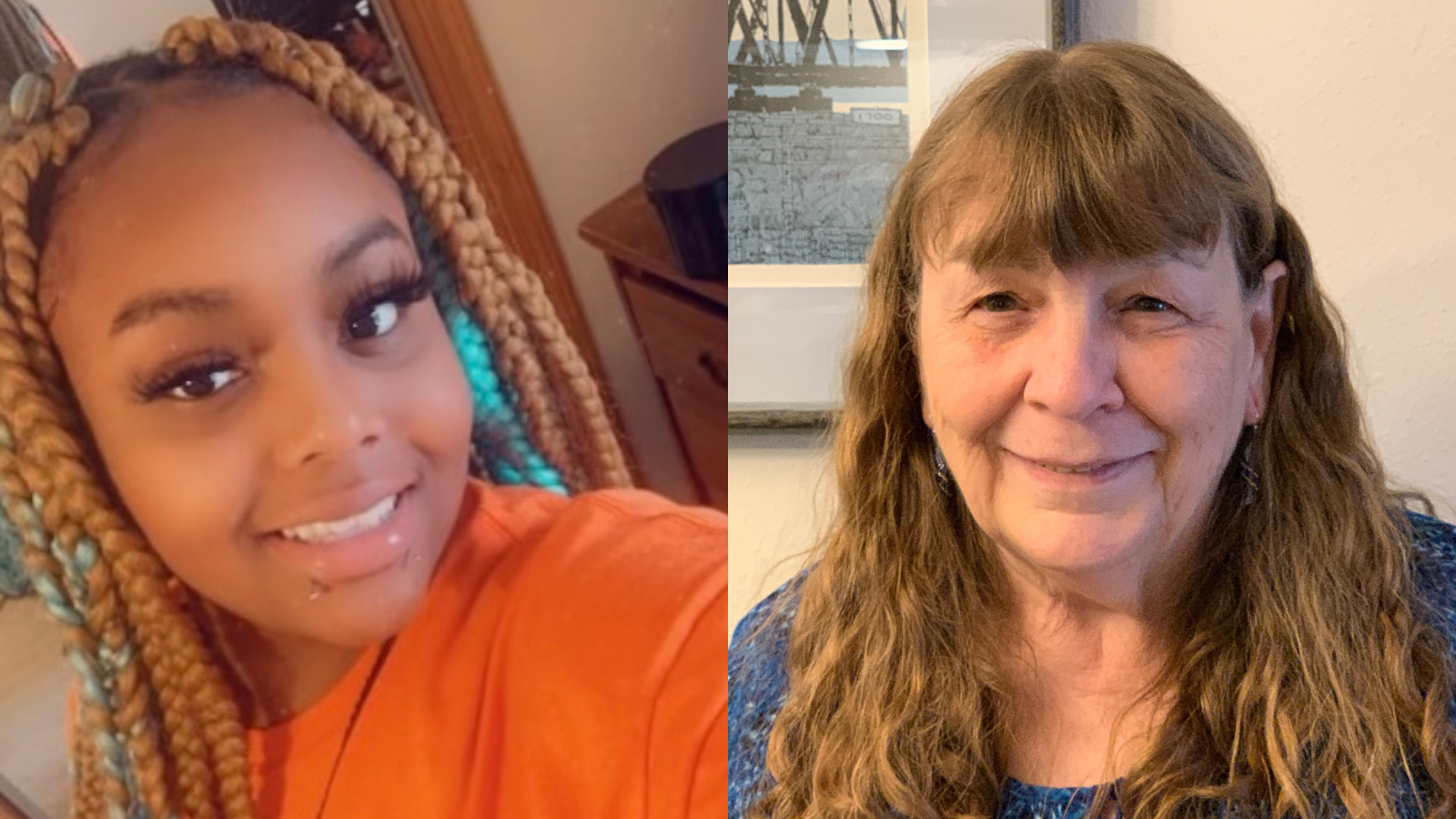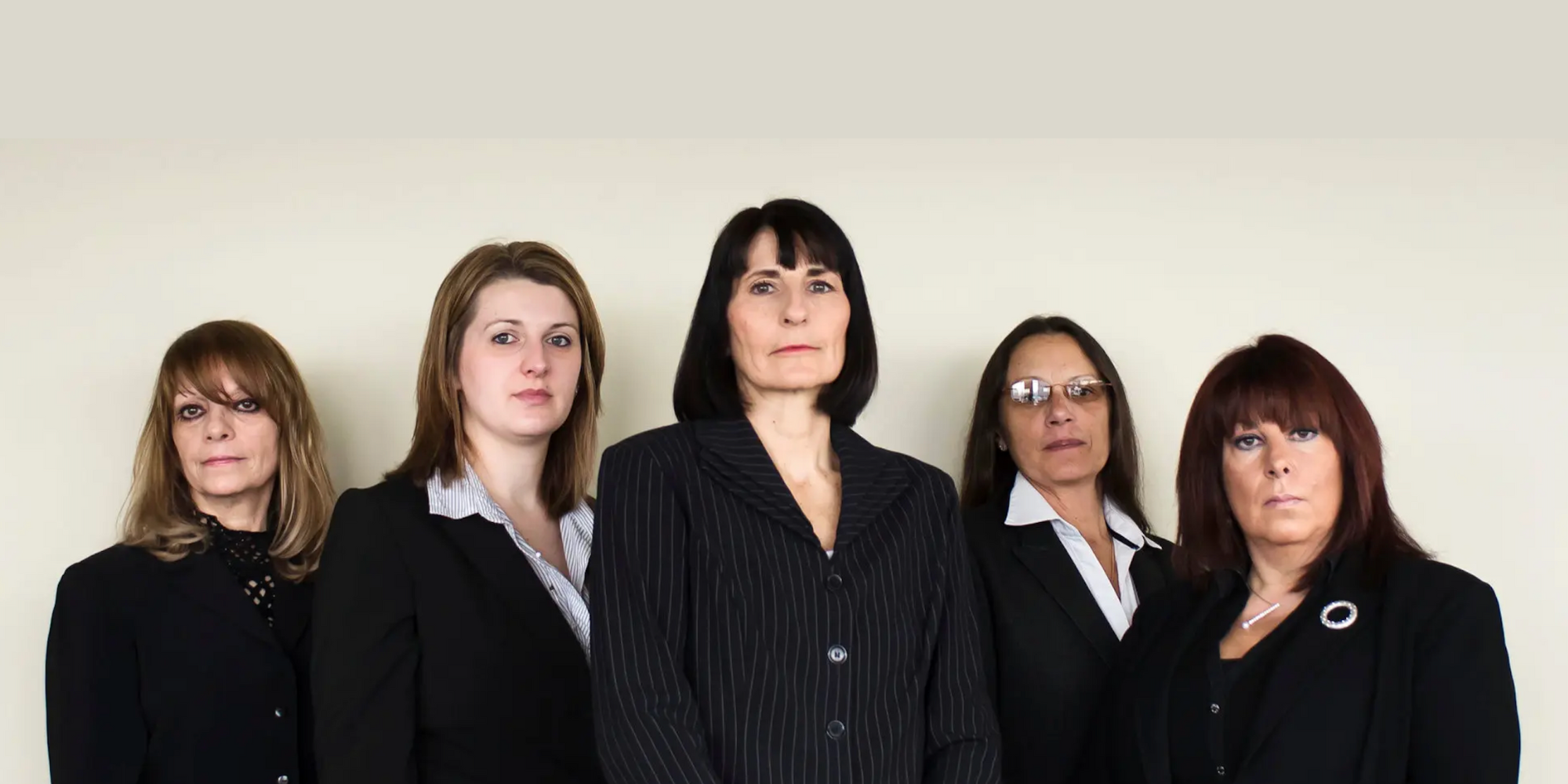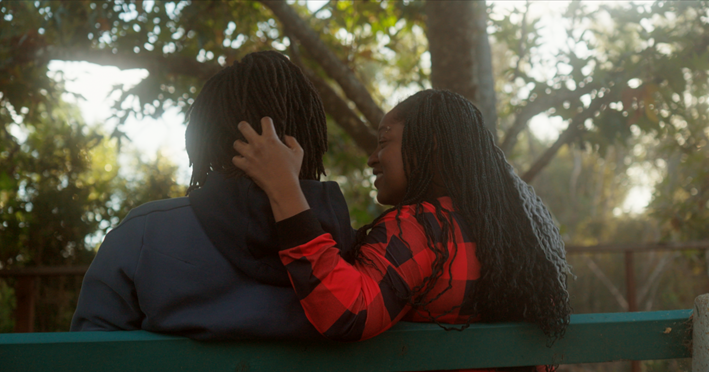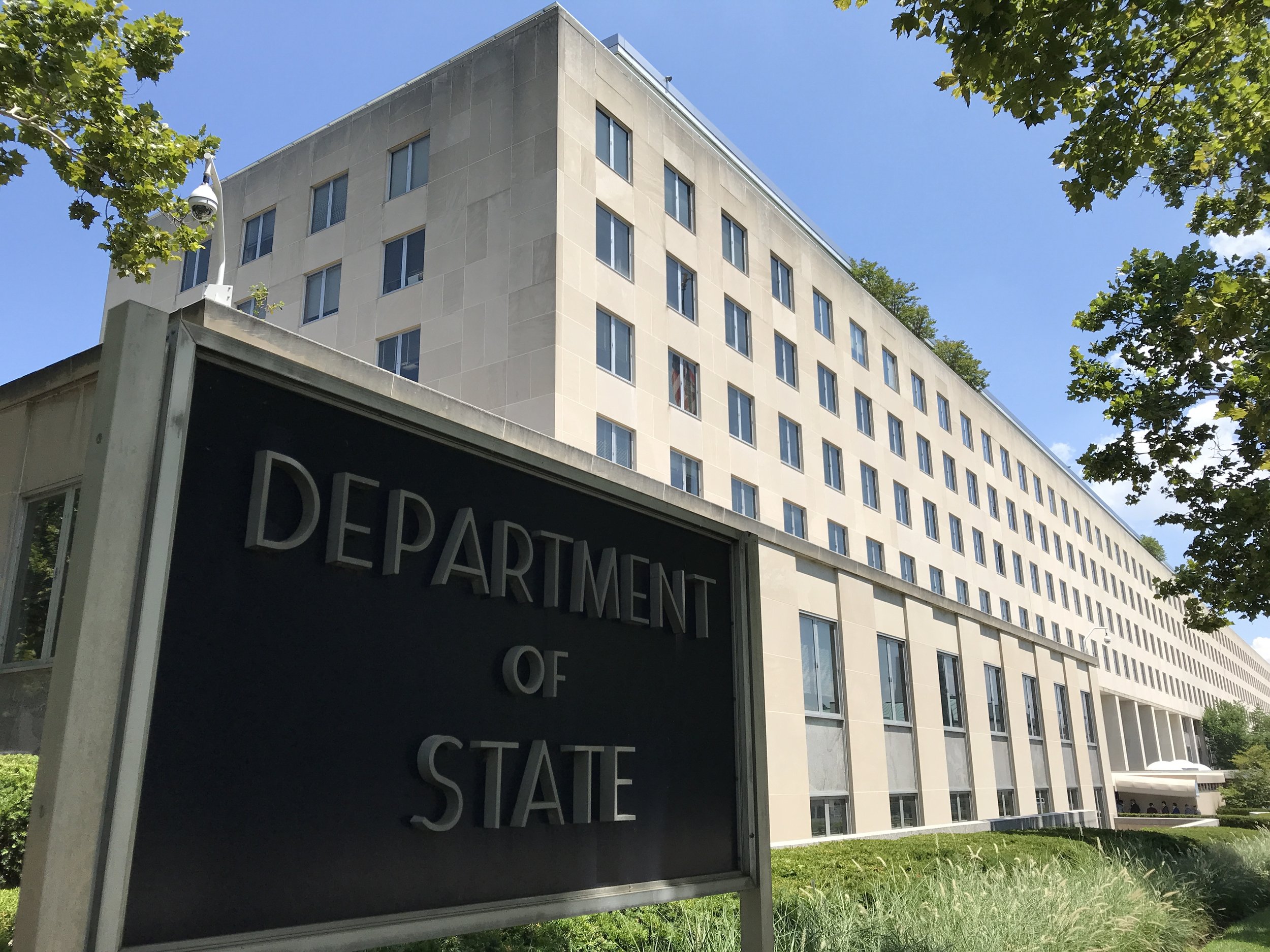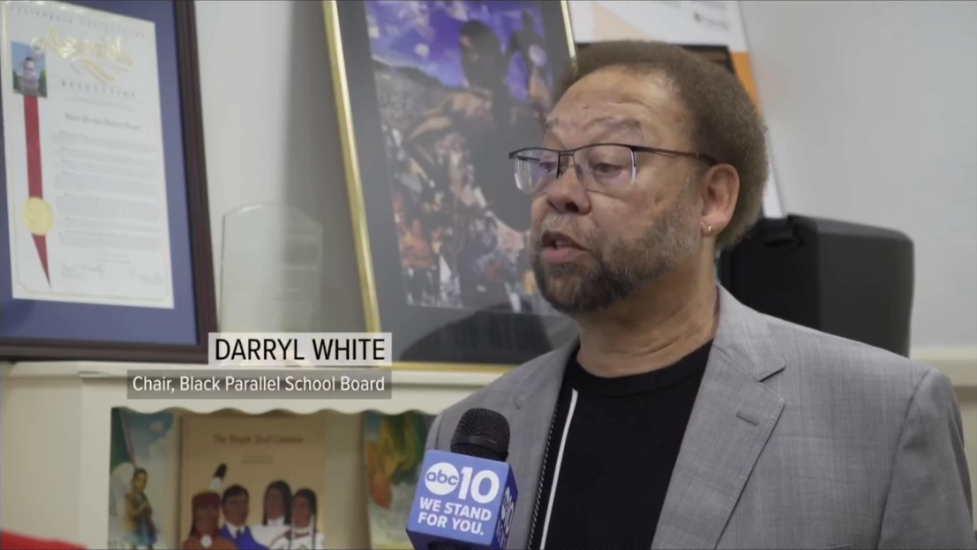
SOCIAL JUSTICE BLOG
Read and share extraordinary stories from the frontlines of social change
Making Justice a Reality: June 2025 Grantee Update
A brief update on some of our grantees’ recent successes pursuing economic, environmental, racial, and social justice.
Class Action Hero Stops Debt Collector Taking Tax Refunds
I was shocked and angry to find out that my 2018 tax refund, in the amount of $79.00, was being withheld despite the fact that I had an active Borrower Defense application pending before the Department of Education.
Later, I discovered from my attorneys that the reason this happened was because Maximus, a debt collector hired by the Department of Education, didn’t notify the IRS of my application's status on time. Because of this, my tax refund was taken from me when it shouldn't have. I also learned from my attorneys that there were many other borrowers, just like me, who also had their 2018 tax refunds withheld to pay for their student loans—all because of Maximus.
These Two Grandparents Fought Back Against Illegal County Court Fees - and Won
Shirley and I have always believed in standing up for what’s right and helping others. But we never expected these values would lead us into a legal fight against Riverside County.
We chose to join a lawsuit to represent other parents and guardians who, like us, were pursued by the County for years even though they couldn’t afford to pay. We were hesitant—it was hard to revisit our struggles, and we worried about how it might affect our reputation. But Shirley and I believe in “love thy neighbor” and wanted to stand up for others.
How to Beat a Bully: Ten Timely Lessons of Perseverance and Triumph After 10 Million Dollars Granted
Who better to listen to now, to turn to for inspiration and guidance, than the very people who have taken on powerful interests to fight for their freedoms — and actually figured out a way to beat the bully?
Below are ten key lessons I’ve picked up from our brave and strategic grantees over the years. I hope you find these lessons helpful, whether you are organizing to challenge an injustice close to home, are involved in impact litigation yourself, or are simply in need of some inspiration in these trying times.
Foster Youth & Advocate Stand Up To Over-Prescription Of Psychotropics
A class action in Missouri challenged the state alleging it unlawfully deprived children in foster care of their liberty interest by failing to provide adequate oversight in the administration of powerful psychotropic medications. It took courage for Khi, a young child at the time, to stand up to state actors who were in a position to continue to abuse her. Fortunately, Kris was determined to stand up for Khi. While not a relative or in any way legally responsible for Khi’s health and safety, Kris took professional and legal risks to protect Khi. Belittled, gaslit, and threatened, they persisted. They stood up together and prevailed. This is their story…
Hawaiʻi Youth Achieve Climate Justice Victory
For many, Hawaiʻi means a vacation filled with relaxation, pristine warm beaches, and an escape from the stress of our daily lives; a time to enjoy all the beauty the islands have to offer. But for those who live in Hawaiʻi, there is no denying the realities of how climate change is affecting the islands and changing the environmental landscape. These changes motivated thirteen youth from across the Hawaiian Islands to act and hold their government accountable for actively contributing to the climate crisis. With strong constitutional and statutory provisions, as well as their desire to protect their lives and the islands that they love, the youth plaintiffs were set up for success in the courts.
Impact Fund Fall Grants of $150K Support Impact Litigation for Communities Seeking Justice
As many in our community anticipate the challenges of the months and years ahead, we are grateful that we have impact litigation as a tool to push back against injustice and seek accountability for harmful practices. Our newest grantees are doing amazing work on behalf of incarcerated people, immigrant detainees, agricultural workers, rural communities, and people of color. In our fall grantmaking cycle, we granted $150,000 to support seven impact lawsuits challenging injustice across the country. We are excited to share their inspiring stories.
How Litigation Advances Our Democracy
You might wonder what litigation has to do with democracy. In her brilliant book, In Praise of Litigation, Professor Alexandra Lahav explains exactly that. She persuasively argues that litigation advances important democratic values and facilitates self-government. Put simply, litigation allows an ordinary person—regardless of social status—to bring a multi-national corporation to court to account for breaking the law and causing injury. Ordinary citizens, acting as jurors, in turn hold the power to weigh the evidence and determine whether the law has been broken. In this way, Lahav observes, litigation both reinforces social equality and ensures that no person in our democracy is above the law.
Litigating Sex-Based Discrimination in Insurance: Montana on the Front Line
In 2021, Upper Seven Law challenged the constitutionality of Montana’s unisex insurance rollback. Armed with data and the strength of the Montana Constitution’s equal protection clause, we filed a lawsuit on behalf of a team of individual consumers and women’s advocacy organizations, including the Montana chapters of the American Association of University Women and the National Organization for Women. The case seeks to invalidate the new law for codifying discrimination against women and unmarried people. Trial is scheduled for the spring of 2025.
Impact Fund Sets New Grantmaking Record In Support Of Communities Seeking Justice
In our summer grantmaking cycle, we granted $203,650 to support nine impact cases brought by communities confronting injustice. This is the highest amount we have ever granted in one quarter, and an exciting end to our largest grantmaking year so far, with a total of $690,150 granted to support 27 communities across the U.S. and Canada seeking their day in court.
Our new grantees this quarter are doing amazing work on behalf of LGBTQ+ students, immigrants, Indigenous people, people with disabilities, unhoused people, and incarcerated people. We are so grateful that we can help support these important cases. Here are the inspiring stories behind them.
Class Action Protects Maine Foster Youth from Dangerous Risks of Psychotropics
Psychotropics can be a meaningful and effective treatment for children with mental health conditions when administered appropriately, but administering them without informed consent, proper oversight, or review can lead to serious, and sometimes life-threatening, consequences. The reforms achieved in the settlement in Bryan C. v. Lambrew are paramount for protecting foster youth. The work of Children’s Rights has ensured that children just like Bryan C. are free of unnecessary and harmful prescriptions and that their voices are heard.
Nako Takes The Reins
When I started working at the Impact Fund in 2015, I was in transition in my own life. I had a 10-month-old baby and wasn’t sure if the legal profession was still for me. In truth, it wasn’t. As originally conceived, this profession was not intended for a first-generation lawyer, woman of color, new mother, building a family while tamping out a path toward a fulfilling livelihood and a more just future. But again, Jocelyn Larkin and the Impact Fund community were there. With the mentorship of Jocelyn and others, I found a sustainable model of advocacy and training, secure in the knowledge that the hours I worked were helping others while also making me a better lawyer.
Impact Fund Spring Grants Support Women, Kids, and People of Color Seeking Justice
In our spring grantmaking cycle, we granted $131,500 to support three impact lawsuits across the country. Our new grantees are doing incredible work to protect the rights of foster youth, challenge the racially biased use of surveillance technology, and prevent gender discrimination in insurance pricing. We are grateful to be supporting these important cases—these are the compelling stories behind them.
Ending Racist and Sexist Exclusion of Caregivers from Critical Labor Standards in Washington
Despite the high priority of their work and its inherent danger, live-in caregivers in the state of Washington may be paid shockingly subminimum wages without any access to state-mandated sick leave. They often work 24-hour shifts without uninterrupted breaks or sleep. Caregivers provide personal care and companionship for residents, assisting residents in bathing, dressing, eating, moving about, taking medication, and attending appointments. This care sometimes includes shifting immobile patients in bed to prevent pressure ulcers. Our clients’ work caused them to suffer musculoskeletal injuries and viral infections, including COVID-19.
Una demanda colectiva convierte una inhumana redada de inmigración en una victoria de la justicia social
El 5 de abril de 2018, oficiales y agentes de ICE rodearon la planta de Southeastern Provisions y fuimos arrestados y discriminados agresivamente en función de nuestro país de origen. Solo los trabajadores latinos fueron arrestados, mientras que los trabajadores blancos fueron dejados solos. Mientras se realizaba el allanamiento, me sentí muy asustado, especialmente por la forma en que los agentes actuaron con nosotros los trabajadores. Los agentes nos gritaban, nos agarraban agresivamente y tenían sus armas desenfundadas.
Class Action Turns Inhuman Immigration Raid Into Social Justice Victory
On April 5, 2018, officers and ICE agents surrounded the Southeastern Provisions plant and we were aggressively arrested and discriminated against based on our country of origin. Only the Latino workers were arrested while white workers were left alone. As the raid was happening, I felt very scared especially because of the way the agents acted towards us workers. Agents were yelling at us, grabbing us aggressively, and had their weapons drawn. We decided to bring this lawsuit because our rights were violated as immigrants and as human beings. We as workers were traumatized by the way we were treated, and our families suffered as well.
Class Action Breaks Pattern & Practice of Discrimination For 67,000 Women
Ms. McConnell was terminated from her store manager job at Sterling after objecting to blatant sexual harassment and was told by her district manager that she could not fight Sterling because “you are only one person.” Ms. McConnell replied, “It only takes one.” McConnell filed her initial charge with the EEOC without an attorney and sought help from the federal government. Other Plaintiffs, like Dawn Souto-Coons, became fed up with the continued denials of promotion opportunities and the unfair pay she was experiencing, and reacted by getting angry and then hiring experienced class action attorneys to assist her. Ms. Souto-Coons said, “I was so mad, it was just an old boys’ club.”
Class Action Brings Justice For Students With Disabilities Unnecessarily Held in Restraints and Seclusion
I decided to take a stand when my own eight year old (at the time) came to me in fear of my punishing her, to tell me that she thought she had been abused at the school and didn’t think it was right and wanted to put a stop to it. When she came to me, she felt as though I was not only aware that it was being done, but also that I agreed with it. In disbelief I decided to make it clear to my daughter that not only was I not in agreement with her treatment, but that I wouldn’t tolerate it for anyone else. It only took an instant for me to decide to take on this battle for as long as I was needed.
People With Disabilities Triumph Over Discrimination in Foreign Service
The State Department denied me the Class 1 medical clearance necessary to begin a position with the Foreign Service. The agency's only reason was my “diagnosed neurological condition,” based on my 1994 multiple sclerosis (MS) diagnosis. They did not consider whether my MS would affect my ability to perform the essential functions of a Foreign Service Officer, but rather thwarted my career based on stereotypes about MS.
Class Action Brings Relief To Black Students Unfairly Targeted For Suspension
A 2018 study by San Diego State and UCLA researchers confirmed Sacramento's record of suspending Black students more frequently. In response, we decided to organize a Parent Listening Session to understand how our Black families were coping with the issues identified in the report. I didn't expect much turnout on a Saturday morning and attended out of mere curiosity. One by one, parents shared their harrowing experiences. The stories were powerful and deeply moving. By the end of the session, there wasn't a dry eye in the room. The neglect and mistreatment these families endured at the hands of the district was heart-wrenching. The idea of a lawsuit, which had been lingering in our minds, became a definitive decision by the end of the meeting.





